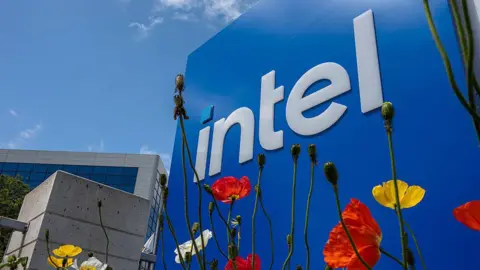TECHNOLOGY

US GOVERNMENT BUYS 10% STAKE IN INTEL IN LANDMARK CHIP DEAL
In a historic move, the US government is taking a direct stake in one of America’s most important tech companies — chipmaker Intel.
The White House announced on Friday that Washington will acquire a 10% ownership stake in Intel, part of a multi-billion-dollar deal aimed at boosting domestic semiconductor manufacturing.
US Secretary of Commerce Howard Lutnick described the agreement as a “major step to secure America’s technological edge,” while President Donald Trump hailed it as a “great deal” for the country. Intel’s shares quickly jumped more than 5% following the news.
What the Deal Looks Like
Intel confirmed that the US government would invest $8.9 billion in its stock. The funds will come from grants already promised under the CHIPS and Science Act — a law passed under President Joe Biden to encourage US-based chip production.
For years, Intel has struggled to keep up with competitors like Nvidia, which has dominated the booming market for artificial intelligence chips. Intel, meanwhile, has fallen behind in innovation and market value. By taking a stake, the US government is signaling it wants Intel to remain a cornerstone of America’s tech infrastructure.
Why This Matters
Chips power everything from smartphones and cars to AI systems and military technology. For the US, maintaining control over chip production is a matter of both economic strength and national security.
“This partnership shows how serious the US is about reshoring critical industries,” said Intel CEO Lip-Bu Tan. “We’re committed to ensuring the world’s most advanced chips are American-made.”
A Rare Step
It’s unusual for Washington to take equity in private companies, but it’s not unprecedented. During the 2008 financial crisis, the US bailed out automaker General Motors by taking a majority stake. More recently, the government made a similar move with MP Materials, a rare-earth mining company.
Some experts see the Intel deal as a bold but necessary step. “It’s about taking a more direct role in private markets to ensure America doesn’t lose its technological leadership,” said Jacob Feldgoise, a research analyst at Georgetown University.
"This represents a significant development in our ongoing coverage of current events."— Editorial Board









